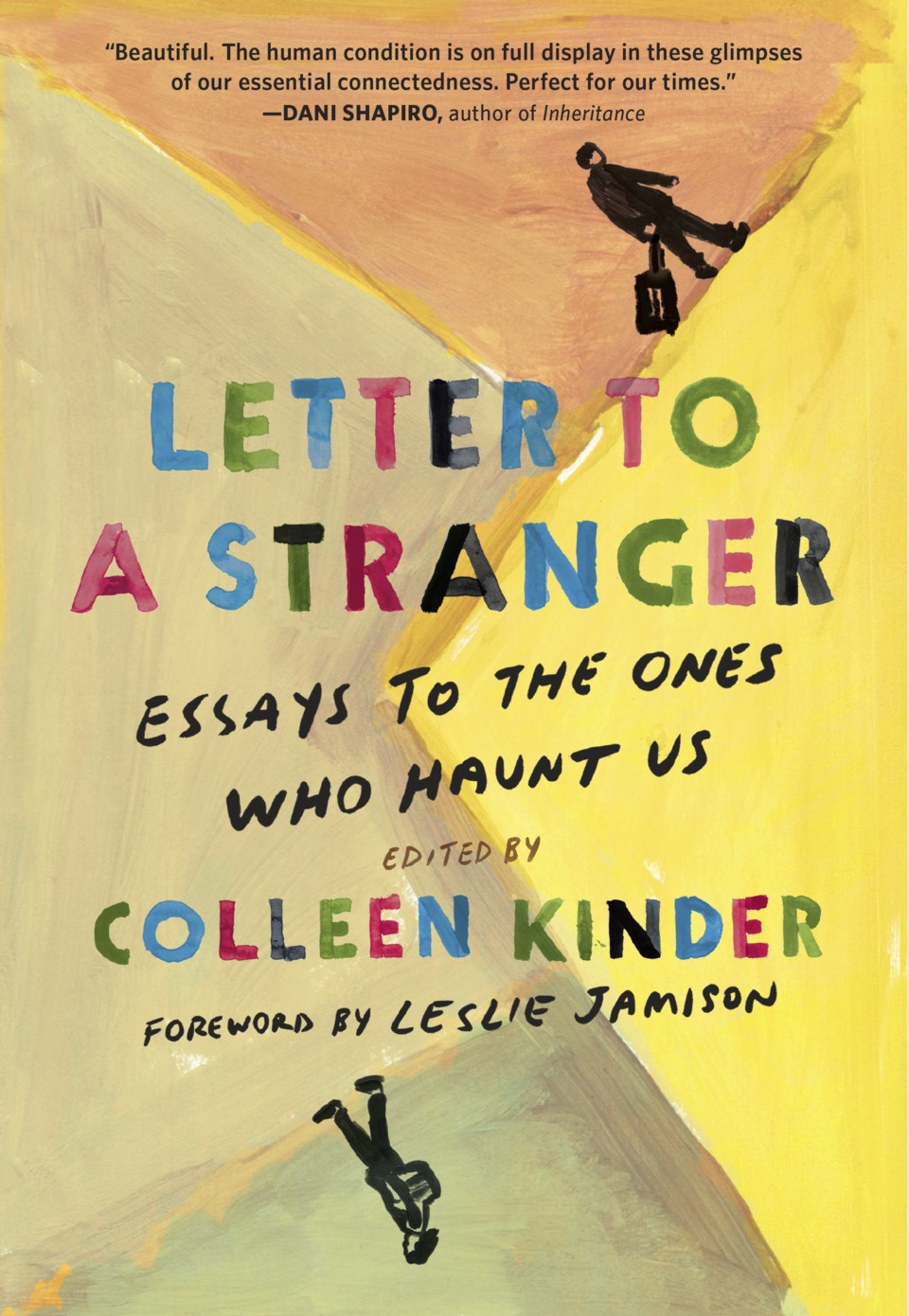“Letter to a Stranger: Essays to the Ones Who Haunt Us” edited by Colleen Kinder (Algonquin)
If you’ve ever purposely gone down the Craigslist Missed Connections rabbit hole, “Letter to a Stranger″ is for you. Sometimes it’s sweet, sometimes funny, sometimes just weird.
“Letter to a Stranger” is a collection of vignettes by writers who all share one thing in common: an experience with a stranger that they just can't shake.
The book’s introduction starts by explaining, "All writers have a peculiar devotion to strangers.” Colleen Kinder’s curated collection displays that devotion — a special kind of extroverted, artistic pull that makes even the introvert capable of fooling someone into thinking they are the most people-y of people persons.
This artistic nature is evident in the latent poetry in each letter’s prose, refreshingly unique in voice from one to the next but all sharing a lyrical quality.
Though it reads like the series of letters the title promises, “Letter to a Stranger” is akin to a travel book. Many of the writers’ impactful encounters happen while away from home and their letters are rich with culture, history, and delicious nuggets of local detail.
With a map helpfully included, “Letter to a Stranger” takes us to a hammock in Mazunte, Mexico, where a young boy's creepy behavior is somehow also endearing; to New York, where a woman's motherly protection provides relief so palpable I nearly cried; to Guanacaste, Costa Rica, where a bus ride provides a sort of epiphany; and so many more spanning the globe.
“Letter to a Stranger” is an endearing reminder of the humanity that surrounds us; messy, awkward, compassionate, vulnerable. Its bite-sized pieces allow you to jump in and out and skip around — though the smooth flow of categories is worth passing through once from beginning to end. Kinder's organization puts the essays in a pattern that could be read cyclically, inviting the reader to come back and start over.
Kinder's concept is enchanting and the execution is solid. The people crystallized within the collection become strangers who haunt and inspire us readers, too.
Donna Edwards, The Associated Press




